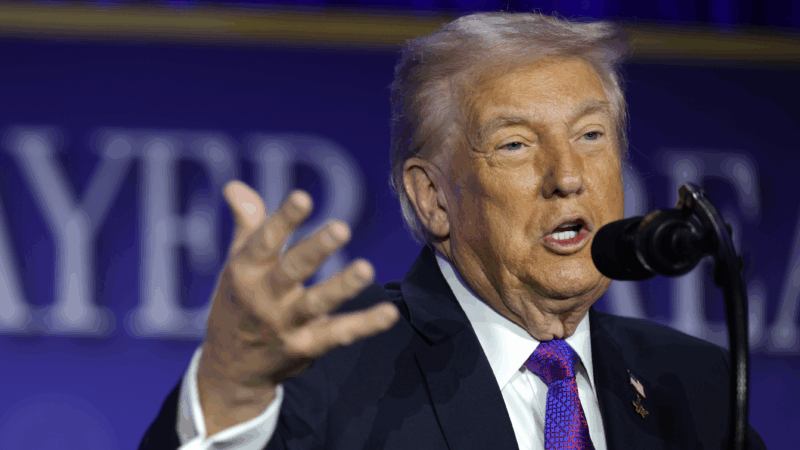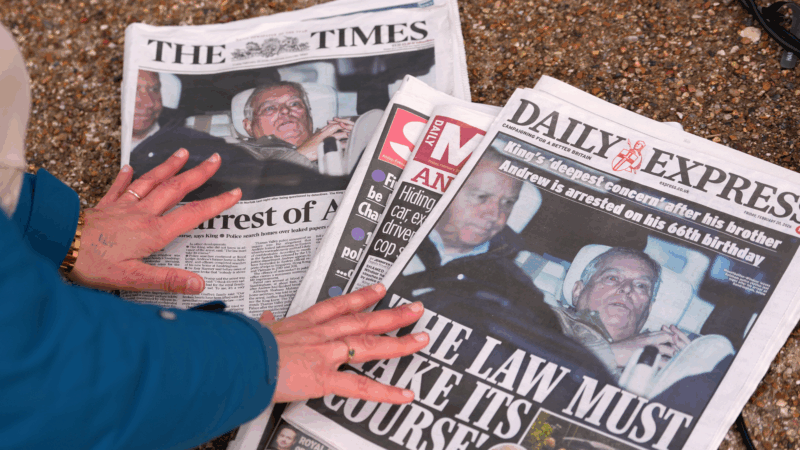Matters of Choice: New Orleans – The Choice Epicenter
Across the country next week, schools, families and advocacy groups will host events to celebrate National School Choice Week. Most Southern states allow for some form of school choice – magnet schools, vouchers for private schools, charter schools and more. How do these options affect learning, school demographics, and student success? The Southern Education Desk explores Matters of Choice beginning with this report from WWNO’s Mallory Falk in New Orleans – the choice epicenter.
Students gather for a weekly value summit on a Wednesday morning at ReNEW Cultural Arts Academy, a pre-K through 8 charter school in New Orleans. They sit crisscross, apple sauce style on the floor in the hallway. There’s a pump up speech from the principal, shout outs from the teachers, and a lot of snapping and reciting school values.
Jewel Hicks sends her five children here. She loves the school, with its the focus on art and general sense of warmth, but she had to shop around. Her two oldest kids started out a different charter school, one with strong academics but strict rules. Students had to walk the halls in silence and straight lines.
“You know they weren’t allowed to talk during lunchtime,” says Hicks. “You have to make sure you have structure for your kids but they are children and they need to have social interaction. They need to have a little bit of freedom,” she continues.
She home-schooled for awhile, tried another school, then heard about Renew Cultural Arts Academy.
“It aligns with my values. So I love it,” said Hicks.
This trial-and-error search for the right fit isn’t uncommon in New Orleans. Here, families actively choose where their children attend because there are no more neighborhood schools. Students apply to schools around the city through a central enrollment process, and a computer algorithm makes matches.
Jeffrey Henig, a professor of political science and education at Columbia University’s Teachers College, says there are two main arguments for school choice. The first, “is simply to give families options.”
“Having more variety and more options so parents can find a placement that’s right for their child’s particular interests and learning styles,” says Henig.
This way, a child is not stuck at a low-performing, under-resourced school. It’s a phrase you hear a lot from school choice advocates: your zip code shouldn’t determine your destiny.
Another, more ideological argument, he continues, is traditional schools will get better.
“Introducing choice will make schools compete to attract students. And that by making schools compete to attract students, schools will improve their level of performance,” says Henig.
But critics say choice can have the opposite effect. Henig calls it the spiral of decline. Charter and private schools attract high performing students with active, engaged parents and absorb public funds. This leaves traditional schools worse off, with the most vulnerable students and even fewer resources.
Deidre Johnson Burel, the executive director of the Orleans Public Education Network, says, “[t]he argument against school choice is really about the power of the school as the nexus of community. That schools are really anchors to community. And we should invest in quality schools in every neighborhood.”
She says more choice doesn’t necessarily mean more good options. In New Orleans, there are some high performing, high demand schools. However, Johnson Burel says, “We have a lot of mediocre schools that are in the middle. And so ultimately choice is optimally about having choice around high quality. And when there is a pool of mediocrity, what does that really mean?”
Henig says the research on school choice shows mixed results. Some charter and private voucher schools are doing a great job while others are not. There is not much evidence school choice has boosted the traditional public school system.
“It’s more complicated than either proponents or opponents say. It’s not that choice is consistently and uniformly and universally better or worse,” he says.
Johnson Burel would like to see a shift away from pro-choice, anti-choice debates.
“How do we lift the floor on what excellence looks like in schools? What’s the capacity that’s missing on why schools aren’t able to deliver on a higher level? I think that’s a more complex conversation,” she says.
“It’s not a sexy soundbite. But it’s the meat of the issue.”
It’s an issue more states and districts will engage with as the school choice movement expands.
This report is supported by a grant from the Corporation for Public Broadcasting. Matters of Choice continues tomorrow with a look at school choice in Florida and how it has impacted public education.
Trump calls SCOTUS tariffs decision ‘deeply disappointing’ and lays out path forward
President Trump claimed the justices opposing his position were acting because of partisanship, though three of those ruling against his tariffs were appointed by Republican presidents.
The U.S. men’s hockey team to face Slovakia for a spot in an Olympic gold medal match
After an overtime nailbiter in the quarterfinals, the Americans return to the ice Friday in Milan to face the upstart Slovakia for a chance to play Canada in Sunday's Olympic gold medal game.
NASA eyes March 6 to launch 4 astronauts to the moon on Artemis II mission
The four astronauts heading to the moon for the lunar fly-by are the first humans to venture there since 1972. The ten-day mission will travel more than 600,000 miles.
Skis? Check. Poles? Check. Knitting needles? Naturally
A number of Olympic athletes have turned to knitting during the heat of the Games, including Ben Ogden, who this week became the most decorated American male Olympic cross-country skier.
Police search former Prince Andrew’s home a day after his arrest over Epstein ties
Andrew Mountbatten-Windsor, the British former prince, is being investigated on suspicion of misconduct in public office related to his friendship with the late convicted sex offender Jeffrey Epstein.
Violinist Pekka Kuusisto is not afraid to ruffle a few feathers
On his new album, the violinist completely rethinks The Lark Ascending by Ralph Vaughan Williams, and leans into old folk songs with the help of Sam Amidon.







